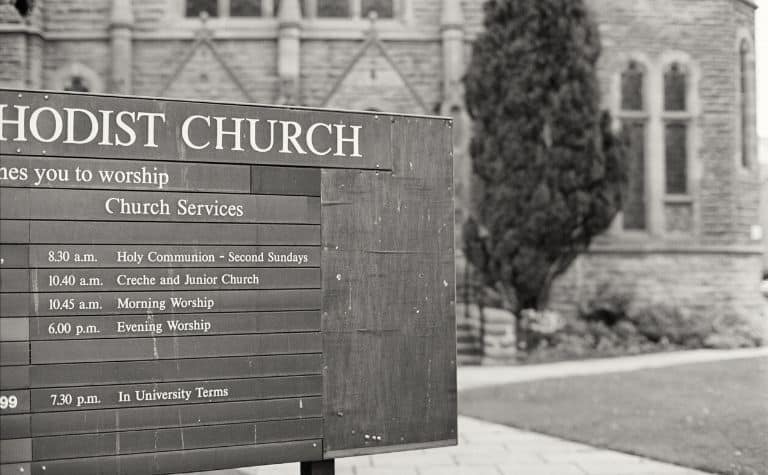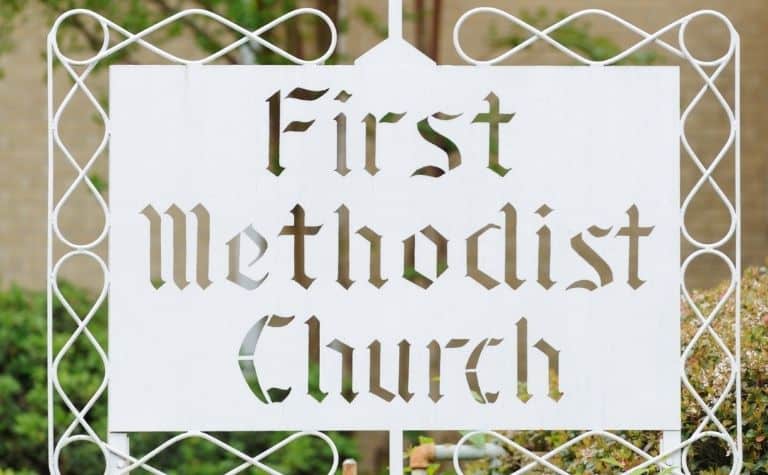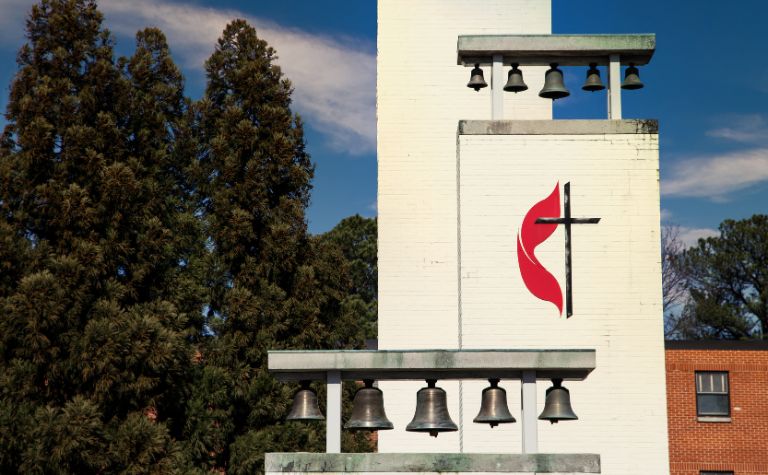The historical branches of Protestant Christianity, including Methodism, have different perspectives on ordaining women to be pastors. Even within traditions like Methodism, there are diverse viewpoints about training, recognizing, and calling women to minister as shepherds of churches.
Most Methodist churches support women pastors. The United Methodist Church (UMC), the largest denomination in the Methodist tradition, has ordained women to be pastors since its establishment in 1968. Other Methodist denominations, like the Southern Methodist Church (SMC), don’t ordain women to be pastors.
What Bible verses do people reference in this debate? Besides the UMC, what other Methodist denominations call women to be pastors? Besides the SMC, which other ones don’t? What did the founder of Methodism, John Wesley (1703-1791), teach about ordaining women? Keep reading to learn more.

Why Do Some Methodist Churches Have Female Pastors?
As a tradition, Methodism has allowed and encouraged women to be pastors much more than other branches of the Christian faith.
However, within many Christian traditions, there has been debate about how to interpret Bible passages that describe qualifications for ministry.
Lutherans, Presbyterians, Baptists, and Episcopalians have all experienced internal debate and tension about ordaining women. (Also see Methodist vs. Catholics: What’s the Difference?)
Verses that Methodist denominations and churches have debated include:
- 1 Timothy 2:11-12, “Let a woman learn quietly with all submissiveness. I do not permit a woman to teach or to exercise authority over a man; rather, she is to remain quiet.” (ESV)
- 1 Corinthians 14:34-35, “The women should keep silent in the churches. For they are not permitted to speak, but should be in submission, as the Law also says. If there is anything they desire to learn, let them ask their husbands at home. For it is shameful for a woman to speak in church.” (ESV)
- 1 Timothy 3:2, “Therefore an overseer must be above reproach, the husband of one wife, sober-minded, self-controlled, respectable, hospitable, able to teach.” (ESV)
The majority of Methodists are in denominations that ordain women to be pastors. Though the churches that only ordain men are smaller in number, their convictions are strong.
Within these traditional Methodist denominations (see below), men and women members are convicted that only men should hold the role of a pastor in a church. (Also see Why Do Methodist Churches Change Pastors?)
What Methodist Denominations Have Female Pastors?
The United Methodist Church (UMC) is the largest denomination in the tradition (by far), with over 7 million members, and the second largest denomination in the United States, trailing only the Southern Baptist Convention, which has over 16 million members. The UMC supports the ordination of women to serve as pastors.
| Methodist Denominations That Ordain Women |
|---|
| Primitive Methodist Church: The PMC denomination in England ordains women to be pastors, but the American branch doesn’t. It does, however, ordain women to be deaconesses. |
| Wesleyan Methodist Church: Women were first ordained in this denomination in the 19th century. |
| Methodist Union: This denomination historically supported female pastors. |
| United Methodist Church: At present, the UMC denomination has an estimated 12,000 women in clergy roles. |
| Allegheny Wesleyan Methodist Connection: The first woman was ordained pastor in 1853, and the tradition continued. |
| Methodist Church of Great Britain: Churches in this association first ordained women in the 1970s. The first woman was elected president in 1993. |
| Bible Methodist Connection of Churches: This denomination historically supported female pastors. |
| Methodist Church of Great Britain: Churches in this association first ordained women in the 1970’s. The first woman was elected president in 1993. |
The United Methodist Church has supported the ordination of women to be the role of pastors since its inception in 1968, which resulted from the multi-denomination merger.
The UMC denomination states, “The United Methodist Church continues to declare its belief in the full equality of women and the importance of women in decision-making and leadership positions at all levels of the church.” [1]

Which Methodist Denominations Don’t Have Female Pastors?
Methodists with a contrary view argue that the heart of the matter isn’t equality but recognize that God often calls people who are fundamentally equal to different roles in the church.
For example, a child and an adult are equal in essence and value, but that doesn’t mean that a child should shepherd a congregation. (Also see Why Do Methodists Sprinkle In Baptism?)
So what is the heart of the issue to those who hold the traditional view? Traditionalists believe the literal interpretation of Scripture is essential (see above). Based on passages like those, traditionalists believe the role of the pastor in local churches is a call God places on a man’s life. Not calling a woman to the pastor position is neither oppressive nor dismissive of their God-given abilities.
| Methodist Denominations That Don’t Ordain Women |
|---|
| Southern Methodist Church |
| Evangelical Methodist Church of America |
| Fundamental Methodist Conference |
| Evangelical Wesleyan Church |
| Primitive Methodist Church |
| Association of Independent Methodists |
While the churches listed above don’t call women to be elders or pastors, many will ordain them to serve as a deaconess. Women aren’t called to the role of the pastor in the New Testament, but they do serve as deaconesses. Their decision comes from the teachings of Scripture alone. (Also see Methodist vs. Baptist: What’s the Difference?)

What Did Wesley Believe About Ordaining Women?
John Wesley first allowed a woman to preach in 1761. The woman was named Sarah Crosby. Mary Bosanquet encouraged Wesley to give Crosby the opportunity after observing her effectively teaching children. (Also see Are Methodists Allowed to Dance?)
Bosanquet argued that God sometimes calls women to preach, even though it was less common than calling a man. Wesley later permitted other women to preach, like Grace Murray, Sarah Taft, and Hannah Ball.
In a 1786 sermon, Wesley said, “It has long passed for a maxim with many that ‘women are only to be seen but not heard.’ And accordingly, many of them are brought up in such a manner as if they were only designed for agreeable playthings! No, it is the deepest unkindness; it is horrid cruelty; it is mere Turkish barbarity. And I know not how any women of sense and spirit can submit to it.” [2]
References:
[1] Source
[2] Source
[3] Source
Related Questions
Methodism is a prominent branch of Protestant Christianity that dates to the mid-18th century. Pentecostalism is a movement within Protestantism that originated in the early 20th century. What's the...
Methodism and Lutheranism are two of the most influential Protestant Christian denominations. Many of their core beliefs are the same, yet they also have critical theological...
